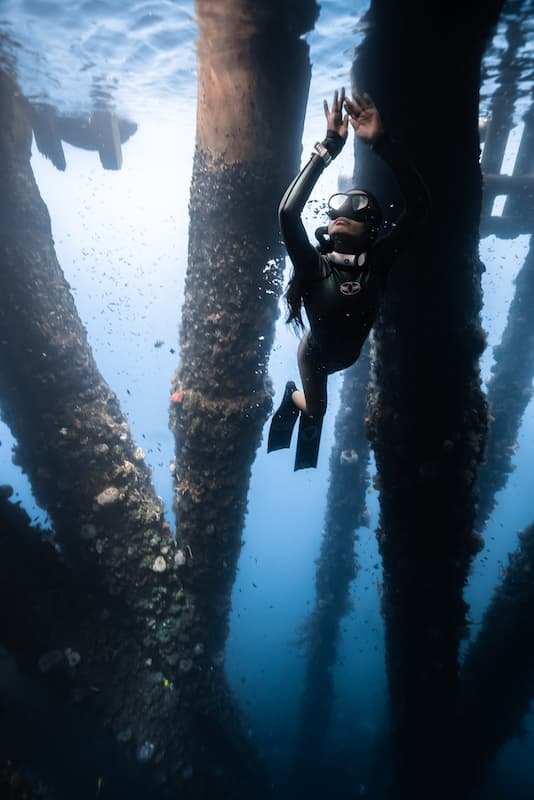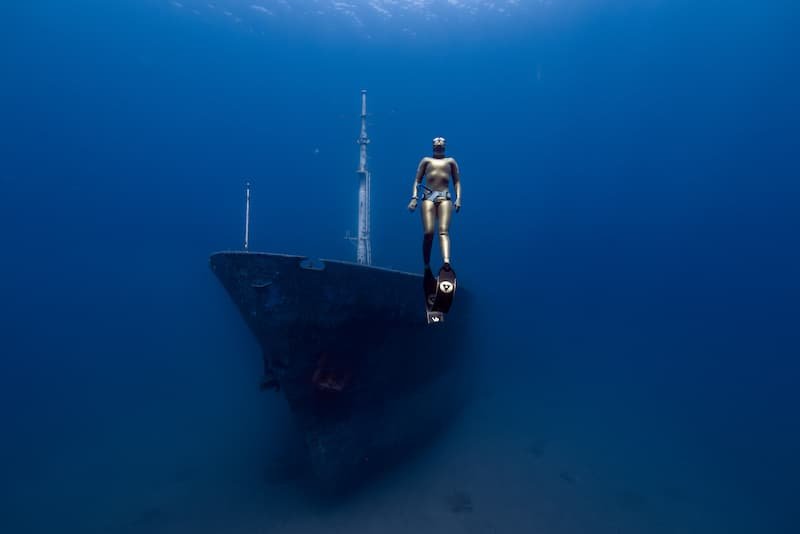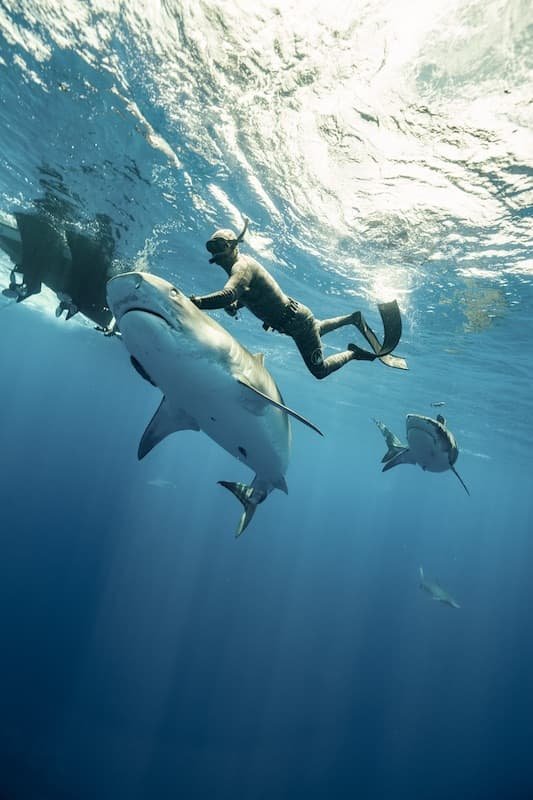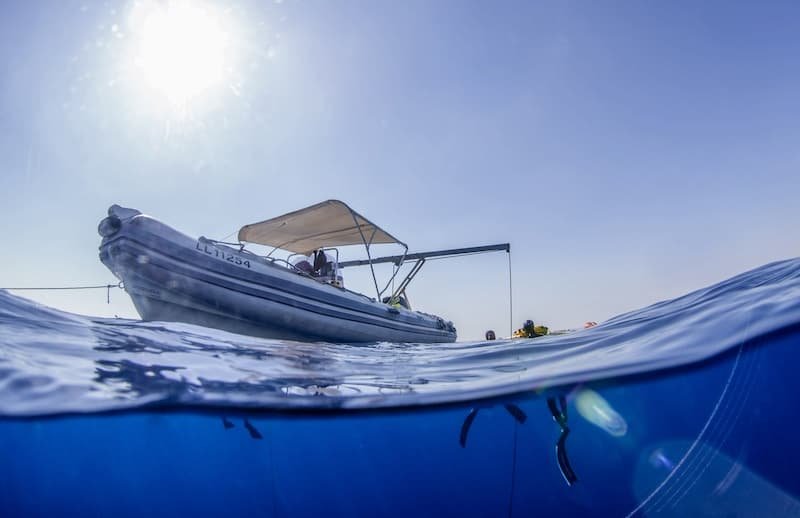
 Katie Wood
Freediver, Writer, Explorer
Katie Wood
Freediver, Writer, Explorer

 Katie Wood
Freediver, Writer, Explorer
Katie Wood
Freediver, Writer, Explorer
Freediving is a captivating and exhilarating sport that allows enthusiasts to explore the underwater world using just a single breath. The freedom and serenity that freediving offers have drawn many people to its depths, and as a result, it has become a popular pastime for adventurers worldwide. Many freedivers dream of exploring exotic destinations abroad, seeking new challenges and unique underwater experiences. While these adventures can be incredibly rewarding, there is a critical caveat that must not be overlooked: understanding and respecting local laws and peculiarities in your chosen destination is paramount. This blog post explores the significance of comprehending the legal and cultural aspects of a destination before embarking on a freediving expedition abroad, with real-world examples to illustrate the importance of this knowledge.
Freediving has a universal appeal, captivating nature lovers, thrill-seekers, and those seeking a deep connection with the ocean. Unlike scuba diving, which relies on complex equipment, freediving is a sport that allows divers to connect with the underwater world on a more intimate level. Whether you're gliding alongside a coral reef, exploring submerged caves, or encountering marine life in their natural habitat, freediving provides an unparalleled and often transcendental experience.

As freedivers progress in their skills and gain confidence, many are drawn to explore new and exotic destinations. The allure of freediving in foreign waters, with their unique marine life, underwater landscapes, and cultural experiences, is undeniable. From the azure waters of the Mediterranean to the pristine reefs of the Maldives and the secluded cenotes of Mexico, the possibilities are endless. However, as enticing as these international freediving adventures may be, they come with a set of challenges and responsibilities that must not be overlooked.

Freediving abroad involves more than just packing your gear and booking a plane ticket. Understanding the local laws, customs, and cultural nuances of your chosen destination is essential for several reasons:
Legal Compliance: Different countries have varying regulations regarding freediving, spearfishing, and the use of marine reserves. Failing to comply with local laws can lead to fines, legal trouble, or even imprisonment.
Environmental Conservation: Many popular freediving destinations are delicate ecosystems that require responsible tourism. Local knowledge can help you make eco-friendly choices, minimizing your impact on the environment and supporting conservation efforts.
Cultural Respect: Understanding the local customs and traditions of your destination is crucial to ensure that your presence as a freediver is welcomed and respected by the local community. Cultural insensitivity can lead to tension and even hostility.
Safety: Local knowledge can be instrumental in identifying potential hazards or safety concerns unique to your destination, ensuring a safe and enjoyable freediving experience.

Let's explore real-world examples to emphasize the significance of knowing local laws and peculiarities before embarking on a freediving adventure abroad.
The Bahamas, with its crystal-clear waters and abundant marine life, is a paradise for freedivers and spearfishers. However, the Bahamian government has strict regulations governing spearfishing, which may not be immediately apparent to tourists. For instance, only Bahamian citizens are allowed to use spear guns for fishing. Tourists can use pole spears or Hawaiian slings, but spear guns are strictly prohibited. Ignoring this rule can lead to fines, confiscation of equipment, or even arrest.
Thailand's Andaman Sea is renowned for its stunning coral reefs, attracting divers from around the world. The Phi Phi Islands, in particular, are a freediver's paradise. However, the Thai government has implemented strict conservation measures to protect these fragile ecosystems. Dropping an anchor in coral-rich areas can result in substantial fines. Local knowledge is crucial for understanding designated anchor zones and mooring buoys to ensure you don't inadvertently damage the reefs.
The Red Sea is a well-known freediving destination, offering breathtaking underwater landscapes and diverse marine life. Egypt, in particular, draws divers to its Red Sea resorts. However, it's essential to respect local customs and traditions. In conservative areas, wearing only swimwear or revealing clothing outside designated beach areas can be considered offensive. Understanding and following dress codes and cultural norms is key to a harmonious experience and respectful interactions with the local population.
The cenotes of Mexico's Yucatan Peninsula are a unique freediving experience. These submerged sinkholes offer otherworldly beauty and are of great cultural significance to the local Maya communities. However, they are also sensitive ecosystems. Local regulations prohibit the use of sunscreen, as it can harm the delicate cave formations and underwater life. Additionally, many cenotes require visitors to shower before entering the water to remove chemicals from their skin. Understanding and respecting these rules is vital for preserving these natural wonders.

Freediving abroad is an incredible opportunity to explore new underwater worlds and immerse yourself in different cultures. However, to fully enjoy the experience and ensure a positive impact, it is essential to be well-informed about the local laws and peculiarities of your chosen destination. Ignorance of the rules and customs can not only result in legal trouble but can also harm the environment and create cultural tensions. To prepare for your freediving adventure abroad, follow these essential steps.
Research Local Laws: Familiarize yourself with the regulations governing freediving, spearfishing, and environmental conservation in your chosen destination.
Respect the Environment: Follow responsible diving practices, including buoyancy control and minimizing your impact on the underwater ecosystems. Leave only bubbles, take only pictures.
Embrace Cultural Sensitivity: Learn about local customs, dress codes, and traditions to ensure respectful interactions with the local population.
Safety First: Understand the unique challenges and potential hazards of your destination. Ensure you are adequately prepared for your freediving adventure, including having the necessary certifications and training.
By taking these steps, you can ensure that your freediving experience abroad is not only safe and enjoyable but also respectful of the local environment and culture. In doing so, you can truly appreciate the beauty of the underwater world and contribute to its preservation for generations to come.